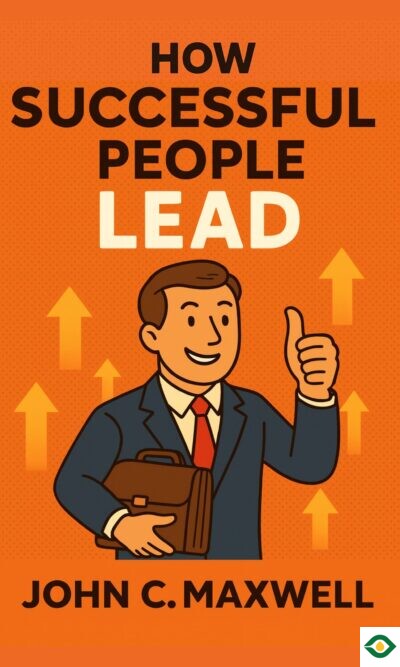Description
We grow up believing success has a fixed formula: get good grades, attend a prestigious college, follow the rules, and everything will fall into place. But the truth is much more complicated. The people who rise to the very top often don’t fit into the tidy boxes society creates. They are dreamers, rebels, workers, and sometimes even misfits. Success is not only about intelligence or following the expected path—it’s about knowing when to break rules, when to trust yourself, and when to give more than you take.
For example, the best students in school—the valedictorians—rarely become world-changing figures. A long-term study showed that while they grew into respectable professionals, they didn’t often shake the world with bold ideas. Why? Because they were trained to succeed inside systems with clear rules. But life has no rulebook. The most successful individuals are not always the ones who were perfect students but rather those who chased their passions obsessively, whether or not they had formal recognition. Many of the wealthiest people dropped out of college, yet they had the drive and creativity to keep going where it mattered.
Kindness, too, plays a surprising role. We often hear that nice people finish last, and it’s true that agreeable people sometimes earn less and are overlooked at work. Bosses often reward flatterers more than diligent workers, even when they see through the flattery. Yet kindness also has the power to put people on top. Research shows that people who give and help others dominate both ends of the success scale. Some givers burn out and get taken advantage of, landing at the bottom. But others become indispensable, earning loyalty, admiration, and networks of support, which lift them to the very top. So kindness is a double-edged sword, but when balanced wisely, it can be a true advantage.
Another key to success is grit. Life is rarely smooth, and setbacks are inevitable. What keeps someone moving forward is often not strength or luck but the story they tell themselves. Positive self-talk can make the difference between quitting and pushing through. Soldiers, athletes, and even surgeons have shown that repeating encouraging thoughts fuels endurance. Beyond that, finding meaning in hardship gives people extraordinary resilience. Viktor Frankl, a psychologist who survived Auschwitz, observed that those who held on to purpose—whether family, love, or hope for the future—were far more likely to endure suffering. In the same way, successful people today push through difficulties by attaching their struggles to something larger than themselves.
Social skills also matter greatly. Extroverts tend to earn more, climb faster, and gain influence. Popular students often grow into high-earning adults. Even activities like social drinking can create unexpected professional opportunities because they strengthen networks. Yet introverts have a different advantage: mastery. To become a true expert in any field requires thousands of hours of focused practice. Introverts, less distracted by large social circles, often have the patience and solitude needed to reach exceptional skill. This balance between extroversion and introversion shows that success is not one-size-fits-all; financial and social success often favor the outgoing, but mastery and excellence lean toward the quiet and focused.
Confidence is another pillar of success. People who believe in themselves tend to perform better, accept challenges, and stand out. Even when less skilled, they are more likely to be promoted or chosen for leadership roles. Confidence is so powerful that even physical attractiveness, which boosts confidence, can raise earnings. Yet too much confidence comes with risks. Power can dull empathy, making people more selfish, careless, or deceitful. Leaders who feel invincible may hurt others without remorse, and history is filled with examples of overconfidence leading to downfall. The lesson is that confidence must be balanced with humility and self-awareness.
Finally, the engine that drives everything is hard work. Talent and intelligence certainly help, but beyond a certain point, extra IQ does little to separate the average from the extraordinary. The real difference is in hours of effort and the determination to push past comfort zones. Studies of top performers—from managers to athletes—show that the best are not just slightly more productive but many times more productive than average. They don’t simply work longer; they push harder, seeking to improve rather than repeating the same patterns. Mentors and demanding coaches often play a role here, pushing individuals beyond what they thought possible.
When we put these lessons together, a new picture of success emerges. It isn’t reserved for the smartest students or the luckiest few. It’s available to those who dare to pursue their passions, give generously but wisely, keep faith in themselves during struggles, balance confidence with humility, and work relentlessly toward improvement. Success is not about fitting into the mold society sets; it’s about breaking it when needed and building your own.
In everyday life, this also means small choices can make big differences. Helping others can create a ripple of goodwill that comes back to you. Telling yourself a better story in hard times can give you the grit to keep going. Pushing yourself a little further each day can add up to extraordinary progress over the years.
At its core, success is not about being the best student, the loudest personality, or the most gifted genius. It’s about being the person who refuses to quit, who chooses meaning over comfort, who gives as well as takes, and who works harder than most are willing to. That kind of success is within reach for anyone who is ready to embrace it.





